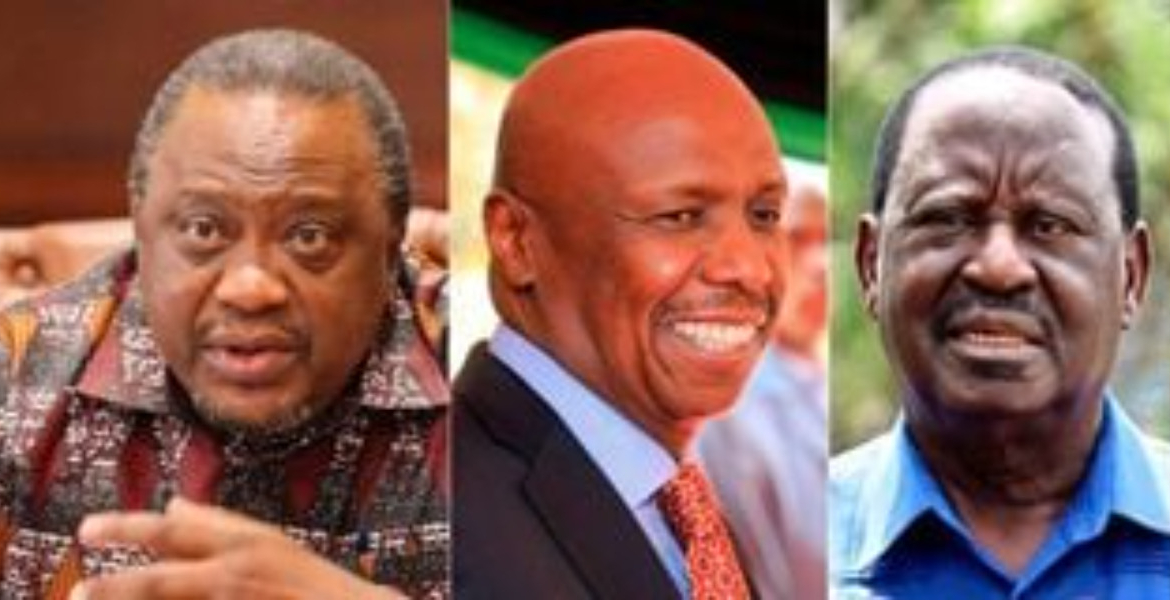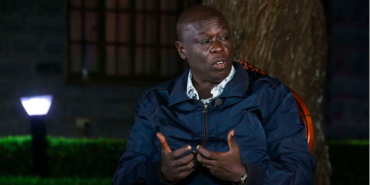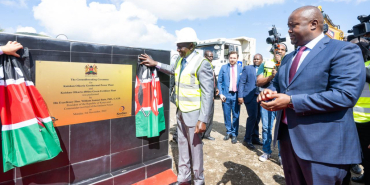Kenyatta, Moi, and Odinga Families Struggle to Stay Relevant in Youth-Led Political Era

Kenya’s established political dynasties, including the Kenyatta, Moi, and Odinga families, are navigating a dramatically altered political landscape as the 2027 general elections approach.
These families, historically synonymous with power and influence, now face internal divisions, external pressures, and an ascendant wave of populist and youth-driven politics that threatens their longstanding dominance. The Independent Electoral and Boundaries Commission (IEBC) anticipates that Kenya will have over 32 million eligible voters by 2027, with plans to register an additional 5.7 million voters. This expanded electorate, coupled with increased digital activism, presents both challenges and opportunities for established political figures.
Recent youth-led protests in 2024 and 2025 have catalysed a demand for issue-based politics, challenging the ethnic and personality-driven models that have traditionally defined Kenyan elections. Analysts suggest that unless traditional parties adapt to this evolving reality, they risk obsolescence. The Moi family, previously anchored by the legacy of former President Daniel arap Moi, has experienced a significant erosion of its political capital.
Gideon Moi, the most prominent heir, lost his Baringo Senate seat in the 2022 elections and continues to struggle to revitalise the Kenya African National Union (KANU), the party his father once led. The defeat of his brother, Raymond Moi, in Rongai, and the resignation of Nick Salat as KANU secretary-general further underscore the dynasty’s waning relevance.
The Kenyatta family, led by former President Uhuru Kenyatta, faces a similarly uncertain future. Following a contentious handover to President William Ruto—who defeated Kenyatta’s preferred successor, Raila Odinga—Uhuru Kenyatta has been subjected to unprecedented political and institutional scrutiny. Allies of Kenyatta have been targeted by state agencies, and family businesses have come under increasing pressure. Despite these challenges, Kenyatta maintains his leadership of the Jubilee Party, a move widely interpreted as a strategic attempt to retain influence and potentially stage a political comeback.
Raila Odinga, the veteran opposition leader and son of Kenya’s first vice president, Jaramogi Oginga Odinga, remains a key figure in national politics. However, his fifth presidential defeat in 2022, despite state backing, has led to fractures within his Orange Democratic Movement (ODM). Internal tensions have surfaced over his perceived rapprochement with President Ruto, culminating in ODM Secretary-General Edwin Sifuna declaring the party’s pact with Ruto’s United Democratic Alliance (UDA) "dead".
Political analysts argue that the current turbulence transcends a mere power struggle, representing a fundamental fight for survival. Javas Bigambo notes that "Political power comes with enormous influence and business leverage. What we are witnessing is dynastic self-preservation driven by the need to protect wealth and shield business empires from scrutiny." Prof Gitile Naituli describes political power in Kenya as a "firewall for dynastic wealth," suggesting that relinquishing political influence equates to abandoning one's security apparatus.
The predicament of these dynasties is compounded by the emergence of new political actors and shifting allegiances. Former Deputy President Rigathi Gachagua, now a vocal critic of the Ruto administration following his impeachment, is reportedly exploring alliances with Wiper leader Kalonzo Musyoka. Kalonzo, long considered a perennial presidential hopeful, has declared his intention to run in 2027, potentially positioning himself as the face of a new opposition front.
Within ODM, internal dynamics are also evolving. Raila Odinga has proposed an Intergenerational National Conclave aimed at addressing systemic issues such as youth unemployment and corruption. While Odinga has not ruled out a presidential bid, his recent rhetoric suggests a shift towards statesmanship rather than candidacy. Emerging figures such as Sifuna, Gladys Wanga, and Hassan Joho are being groomed for leadership, signalling a generational transition within ODM.
Despite these setbacks, the dynasties are not conceding defeat. Uhuru Kenyatta’s continued leadership of Jubilee, Raila Odinga’s diplomatic engagements, and Gideon Moi’s cautious recalibration all indicate strategic ambiguity—a refusal to concede, coupled with efforts to remain relevant in a rapidly evolving political environment.








Add new comment